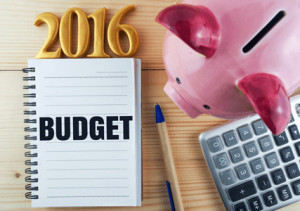Millennials Have More Emergency Savings Than Credit Card Debt
 Many people struggle to put away enough savings, and many also carry credit card debt that they are trying to pay down. Deciding how much money to put toward credit card debt and how much to put away for savings is a tricky balance—one that often ends up in more debt than savings.
Many people struggle to put away enough savings, and many also carry credit card debt that they are trying to pay down. Deciding how much money to put toward credit card debt and how much to put away for savings is a tricky balance—one that often ends up in more debt than savings.
However, a recent survey suggests that Millennials, that youngest generation often slammed for poor money management habits and lack of financial literacy, may be doing better in this department than the rest of the country. While nearly half (48%) of Americans have more credit card debt than emergency savings, Millennials are the demographic least likely to let their credit card balances balloon while their savings shrinks.
“Contrary to society’s perception of Millennials and their financial characteristics, Millennials have learned from their parents’ mistakes and are more cautious when it comes to saving for that rainy day,” said financial analyst Greg McBride, one of the study’s sponsors. “Their aversion to credit cards may have also played a part in helping them grow their savings accounts,” he continued.
No savings, but no debt either
Some folks don’t have any credit card debt at all—but they also don’t have any savings. In fact, that percentage of people has jumped over the last year, from 13% to 21%.
Having emergency savings is important for several reasons. Most financial experts recommend that folks have three to six months worth of expenses put away, just in case. That includes enough money to cover the rent or mortgage, groceries, gas, utilities, and any other essentials, in case the unexpected arises. That could be illness, losing a job, getting a divorce, or any other circumstance that keeps you from earning a regular paycheck, such as staying home to take care of a child or elderly family member.
Even if people have credit card debt, it’s worth putting money into savings at the same time you’re trying to pay off your debt. Financial advisors call this “paying yourself first” and it makes sense. After all, if you end up without enough money to live on during an emergency situation, your debt will just go up again and you could end up at square one.
Methodology
Princeton Survey Research Associates International (PSRAI) conducted this study over the phone. Interviews with 1,000 adults were done during February 2016, both on landlines and cell phones, and in English and Spanish.
